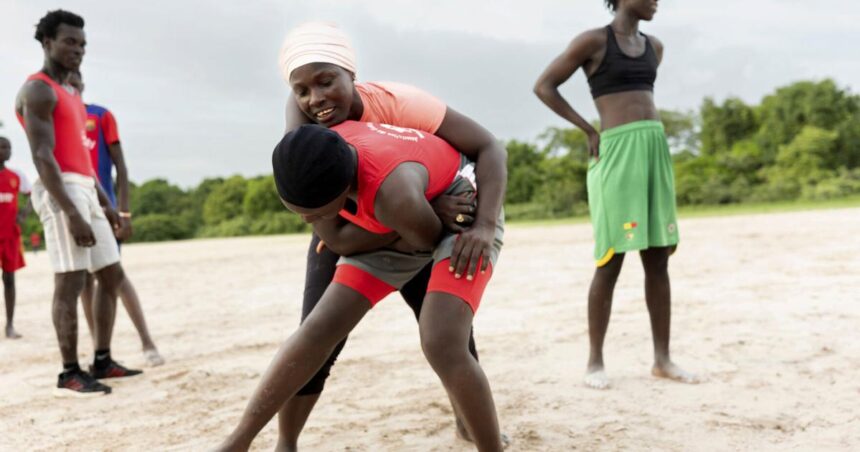As the West African heat finally begins to fade in Mlomp, a village in southern Senegal, dozens of teenagers in colorful jerseys are engaging in wrestling to the rhythm of Afrobeats against a backdrop of palm trees.
Wrestling is a national sport in Senegal, celebrated like rock stars. The local variation, called laamb in Wolof, has been a part of village life for centuries. Senegalese wrestle for entertainment and to mark special occasions. Women are generally excluded from wrestling, except in the Casamance region where women traditionally wrestle alongside men, particularly among the Jola ethnic group.
Coach Isabelle Sambou, a two-time Olympian and nine-time African wrestling champion, speaks to the cultural significance of wrestling for women in her village. Despite facing societal barriers, Sambou pursued a career in wrestling and represented Senegal in the Olympic Games.
After retiring from professional wrestling, Sambou returned to her village to coach young wrestlers, including her niece Mame Marie Sambou. Despite limited resources and societal challenges, Sambou continues to mentor young athletes, aiming to empower them for future success.
Although Sambou faces financial difficulties and a lack of institutional support, she remains committed to promoting women’s wrestling in Senegal. The changing perceptions of women’s roles in society offer hope for the future of female athletes in the country.





